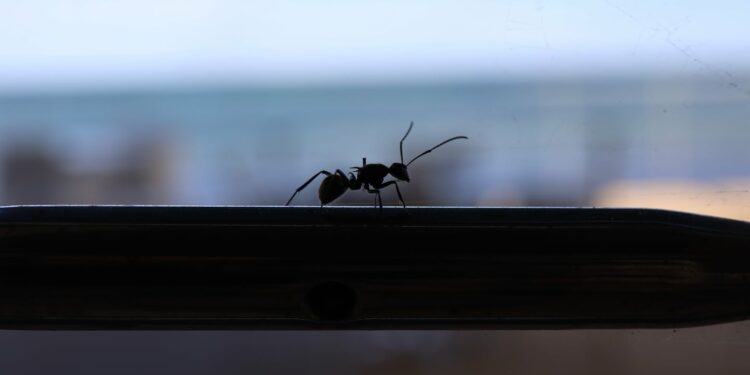What are some practical tips for preventing ant hitchhiking when traveling?
Uncovering the True Impact of ‘Ant Hitchhiking’
As we go about our daily lives, it’s easy to overlook the impact that small creatures can have on our environment. However, when it comes to ‘ant hitchhiking’, the consequences can be more significant than you might think. Ant hitchhiking occurs when ants stow away on vehicles, luggage, or other objects and are unintentionally transported to new locations. This seemingly harmless act can have a profound impact on ecosystems, agriculture, and human health.
In this article, we’ll explore the true impact of ant hitchhiking and how it affects different aspects of our lives. We’ll also provide practical tips on how to prevent ant hitchhiking and what to do if you suspect that you’ve inadvertently transported ants to a new location.
The Environmental Impact of Ant Hitchhiking
Ants are highly adaptable creatures that can thrive in a wide range of environments. When they are unintentionally transported to new areas, they can establish new colonies and outcompete native species for resources. This can disrupt the delicate balance of local ecosystems, leading to a decline in biodiversity and the loss of native species.
Additionally, some ant species are invasive and can cause extensive damage to crops, gardens, and natural habitats. These invasive ants can become a nuisance for homeowners and farmers alike, leading to significant economic losses and the need for costly pest control measures.
The Impact on Agriculture
Ant hitchhiking can also have a direct impact on agriculture. Invasive ant species can damage crops, affect the health of livestock, and even compromise the structural integrity of buildings and machinery. The presence of ants in agricultural settings can lead to reduced yields, increased production costs, and reduced quality of produce.
Furthermore, ants can protect pests such as aphids, scale insects, and mealybugs, which can further harm plants and crops. This symbiotic relationship between ants and pests can exacerbate the negative impact of ant hitchhiking on agricultural systems.
The Impact on Human Health
In addition to their impact on the environment and agriculture, ants can also pose a threat to human health. Some ant species are known to inflict painful stings, which can cause allergic reactions in some individuals. Additionally, ants can contaminate food and water supplies, potentially leading to the spread of diseases.
Preventing Ant Hitchhiking
It’s clear that ant hitchhiking can have far-reaching consequences, but there are steps that we can take to prevent it from occurring. Here are some practical tips for avoiding ant hitchhiking:
– Inspect and clean vehicles, luggage, and outdoor equipment before traveling to prevent ants from hitching a ride.
– Avoid transporting firewood, plants, and soil from one location to another, as these items can harbor ants and other pests.
– Be mindful of the materials you bring into your home or garden, and only purchase items from reputable sources that have been inspected for pests.
If you suspect that you’ve inadvertently transported ants to a new location, it’s essential to act quickly to prevent them from establishing a new colony. Contact a pest control professional for advice on how to proceed, and consider implementing measures to eradicate the ants before they can become a larger problem.
Case Studies and First-Hand Experience
One example of the impact of ant hitchhiking can be seen in the case of the red imported fire ant (Solenopsis invicta) in the United States. This invasive ant species has caused significant ecological and economic damage, displacing native species and disrupting agricultural systems. Efforts to control the spread of these ants have required extensive resources and collaboration between government agencies, researchers, and the public.
Additionally, individuals who have experienced firsthand the consequences of ant hitchhiking can attest to the challenges and frustrations it can cause. Whether it’s dealing with an infestation in their home or witnessing the effects of invasive ants on local ecosystems, these experiences underscore the importance of preventing ant hitchhiking.
ant hitchhiking may seem like a minor issue, but its impact on the environment, agriculture, and human health should not be underestimated. By taking steps to prevent ant hitchhiking and being mindful of the potential consequences, we can help protect our ecosystems, preserve agricultural systems, and safeguard human health.
By raising awareness of the true impact of ant hitchhiking and promoting responsible behavior, we can minimize the spread of invasive ants and mitigate the damage they can cause. Together, we can make a significant difference in preserving the health and stability of our natural and agricultural environments.
Entomologists Discover Ants Hitching Rides on Private Vehicles
A recent analysis has revealed that ants may also be hitching rides on private vehicles, akin to the behavior of invasive insects transported by agricultural vehicles. The study, published in Ecological Entomology, utilized a citizen science project in Taiwan to gather data on ant infestations in private cars between 2017 and 2022.
The findings indicated 52 instances of “active ant hitchhiking,” with ants infiltrating car interiors and even engines, thus representing a potential public health risk. Nine ant species were identified, most of which were invasive. Interestingly, reports of infestations surged during warmer months and decreased during colder months, with vehicles parked near trees being particularly susceptible. It is believed that ants were able to access cars by climbing onto them from nearby trees using branches and leaves.
The successful hitchhiking behavior of ants may be attributed to their heat tolerance, enabling them to endure the high temperatures inside closed cars and on painted surfaces. Additionally, it is speculated that tree-dwelling ants are more adept at clinging to the slick paint of vehicles due to their climbing abilities, thus making them better hitchhikers than ground-dwelling ants.
These findings have significant implications for the management of ant invasions, prompting the need for increased surveillance efforts and the development of a predictive framework to anticipate ant behavior. It is essential for scientists to further explore how invasive species expand their habitats in order to mitigate the impact of these ant invasions on ecosystems and human environments.






